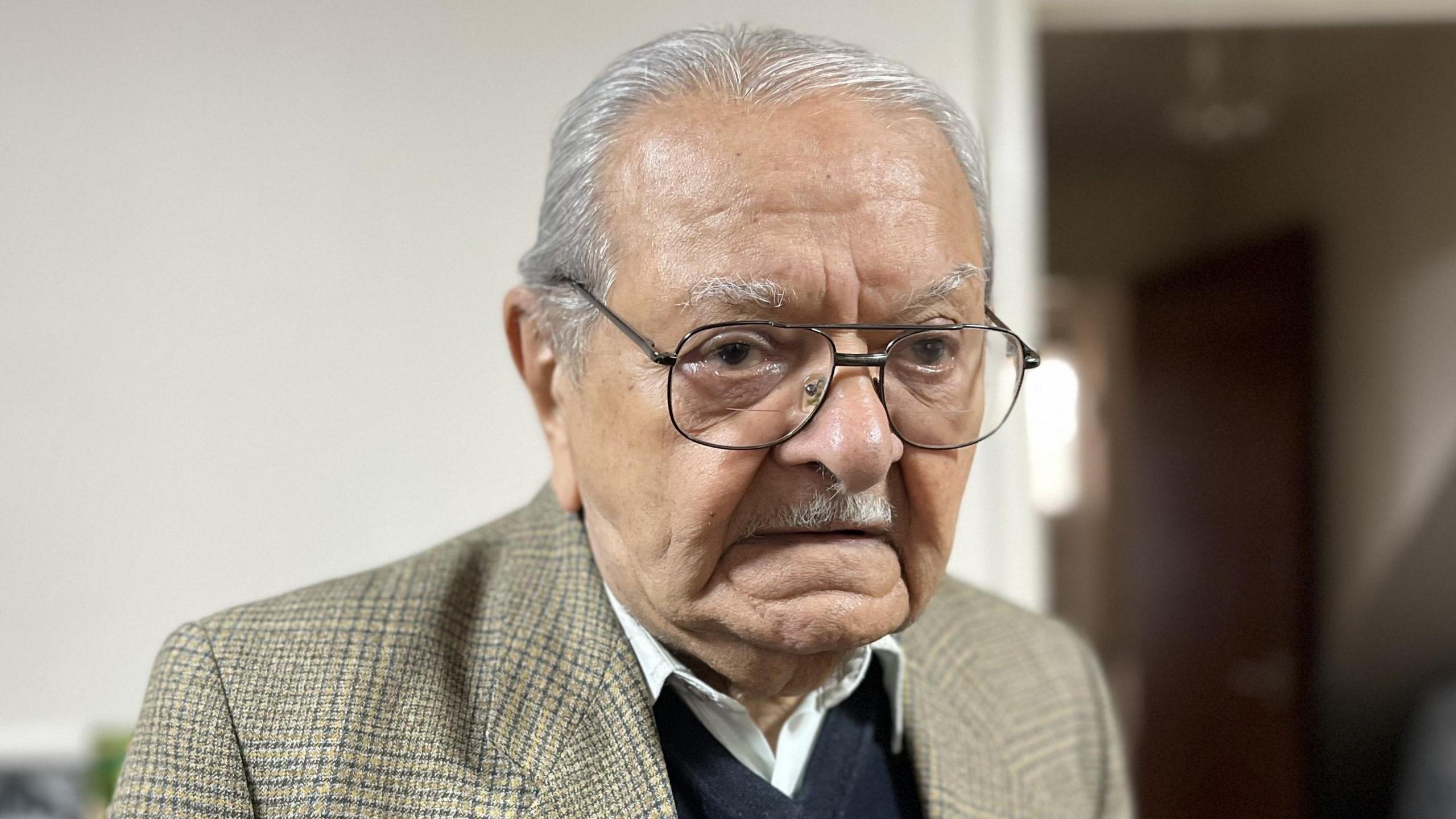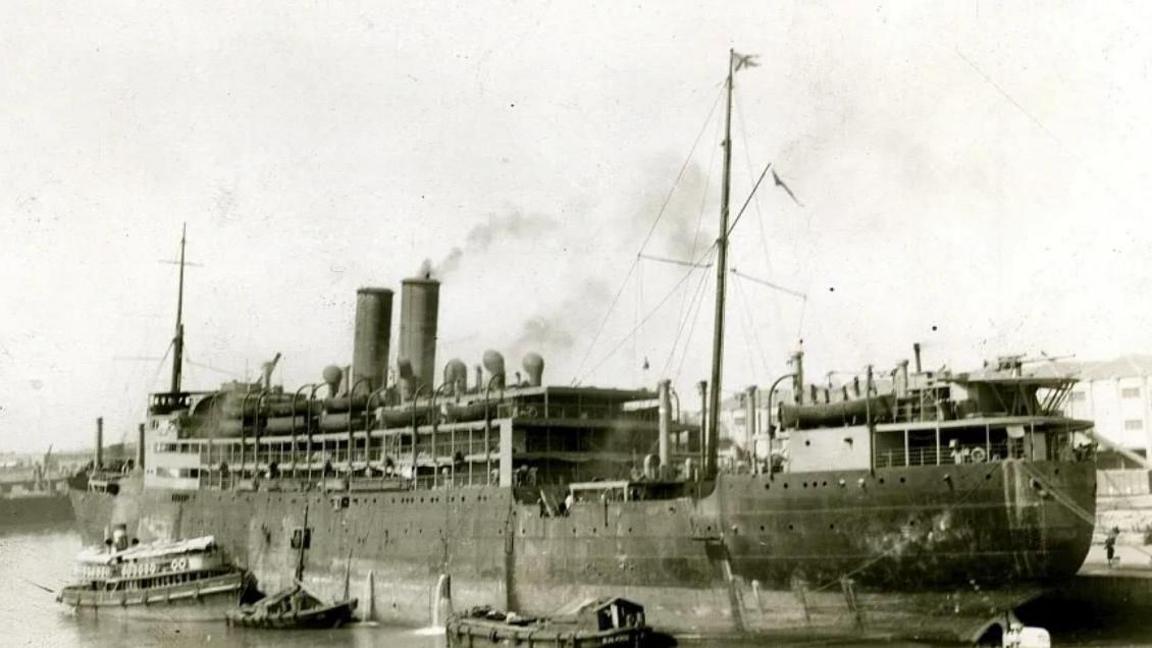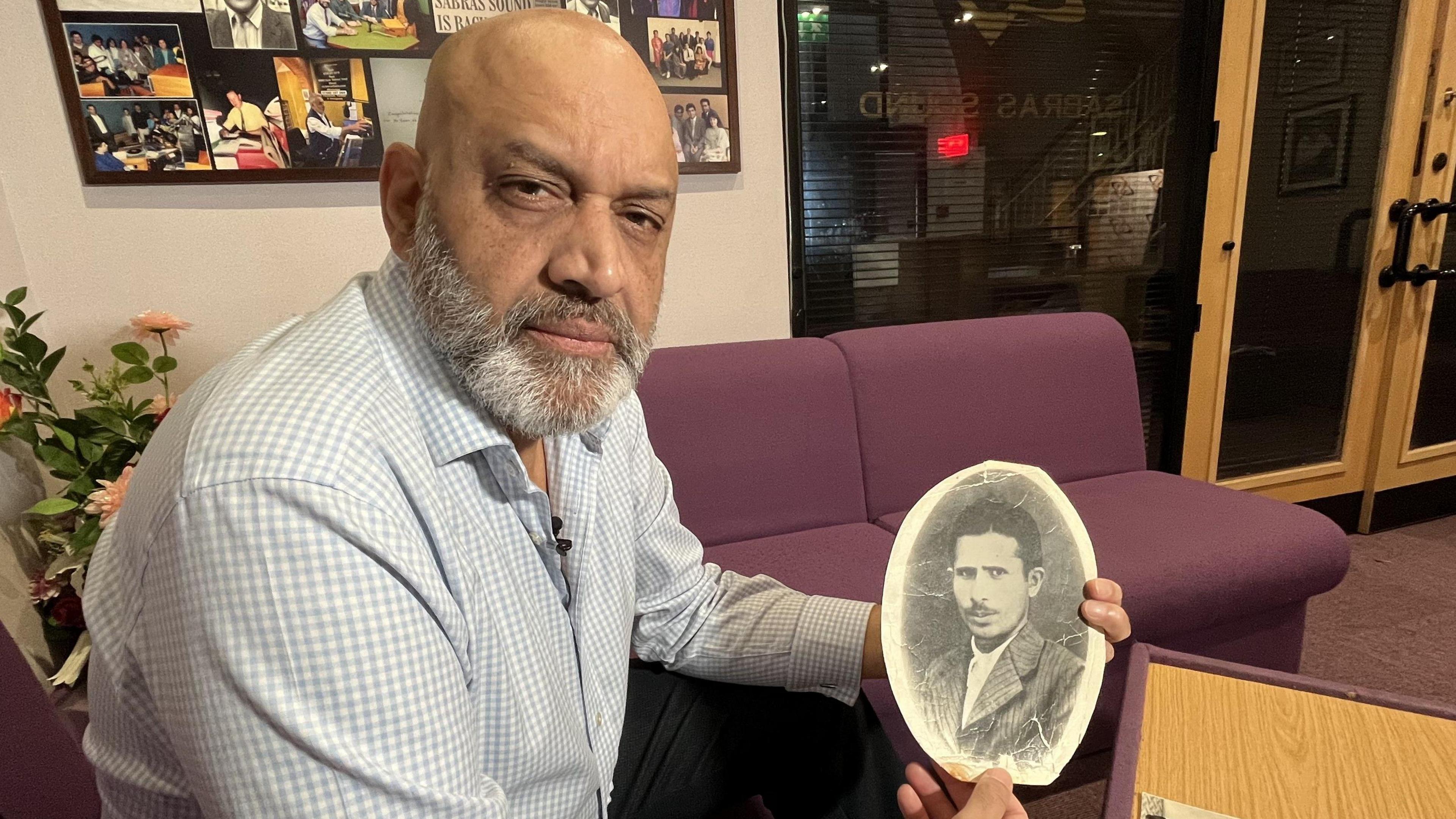Surviving the last voyage of a WW2 passenger liner

Abdul Gaffer Osman, 91, is one of few known, living survivors of the little-known tragedy of the final voyage of SS Tilawa in 1942
- Published
Standing on a ship in the middle of the Indian Ocean during World War Two, eight-year-old Abdul Gaffer Osman, his mother and three-year-old brother were left with two choices.
"There was no time to think," the now 91-year-old said. "If you stayed on the ship, you were going to die, if you jumped in the water, you're going to die also."
The SS Tilawa was en route from India to South Africa when it was torpedoed and sunk by a Japanese submarine on 23 November 1942.
Today, Mr Osman, who moved to Leicester in the 70s, is among few living survivors of the little-known tragedy that claimed the lives of 280 people.
The Tilawa was launched in 1924 and later, during the war, was used to transport troops and cargo.
It was carrying tonnes of silver on its way to South Africa during the global conflict - some of which was salvaged and made headlines in 2024 over a legal row.
However, many of the stories behind the lives impacted by the tragedy remain untold.

The SS Tilawa, which was owned by the British India Steam Navigation company, was carrying more than 900 people when it sank
Mr Osman had been travelling with his mum, brother, aunt and uncle for about two weeks when he said the ship was intercepted.
There had been "inquiries" by the Japanese about the boat's cargo, he said.
A few hours later, he recalled, there was a "complete blackout" and passengers were being told to put on their life jackets.
"People were pushing each other," he recalls. "It was nearly two o'clock at night.
"Everybody was jumping. It was just a rush.
"A few parents, they lost their children. It was a nightmare," he said.
Mr Osman, his mum and brother fell into the ocean moments before the ship was struck.
He and his mother managed to scramble on to a plank of wood, while his brother was taken on to a lifeboat, he said.
It was about two days before the pair were rescued.
"We could see only waves and many people - they were dead," he said.
Fear of deep water
His aunt was also rescued but the family never saw his uncle again.
"His last words, as far as I remember, was that he said 'I want to make some arrangements to get our family out of this trouble'.
"That's what I remember. Then I never saw him again," Mr Osman said.
He was later reunited with his brother and mum in a military hospital in India, where he said he spent a month recovering.
A couple of months later, Mr Osman and his family set off once again on the journey they intended to make and settled in Malawi, in East Africa.
They started life afresh, but the trauma of the sinking of the Tilawa never left Mr Osman.
"Sometimes we would go to the lake, in Malawi, but I would never go in deep water because all the memories - they came back.
"Even now, when I go on holiday somewhere, I never go in deep water," he said.

Kash Kumar began researching the SS Tilawa after learning his grandfather had lost his life when the ship sank in 1942
Now 83 years on since the Tilawa's last voyage, the anniversary is being marked in Leicester on Sunday.
Kash Kumar, a local radio manager and broadcaster, and his son Emile Solanki are behind the event and have spent 18 years researching the Tilawa.
"The SS Tilawa has a great connection to Leicester, because we've had survivors of the tragedy move to Leicester back in the 1960s and 1970s," Mr Solanki said.
What started as a personal journey became a project that would connect survivors from across the world.
Mr Kumar, 62, had spent most of his life believing the man who was actually his father's uncle, was his grandfather - a discovery he made when he stumbled across an unfamiliar portrait in a cabinet at home.
To his astonishment, his father revealed the image was in fact Mr Kumar's real grandfather, who drowned when the Tilawa sank in 1942.
That discovery, he said, was the "trigger point" that led to finding an "international Tilawa family".
Mr Kumar said his son had taken their research to "new heights", reaching people from the US, South Africa and India, with a connection to the ship.
He added: "It has been wonderful to connect with people who were on the ship.
"These guys were on the ship as young people.
"To actually hold them and speak to them and get to know their experiences, it's been absolutely moving - a moving experience."
Get in touch
Tell us which stories we should cover in Leicester
Follow BBC Leicester on Facebook, external, on X, external, or on Instagram, external. Send your story ideas to eastmidsnews@bbc.co.uk, external or via WhatsApp, external on 0808 100 2210.
Related topics
- Published9 May 2024
